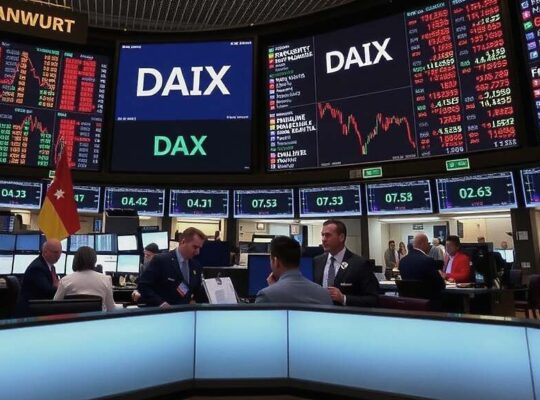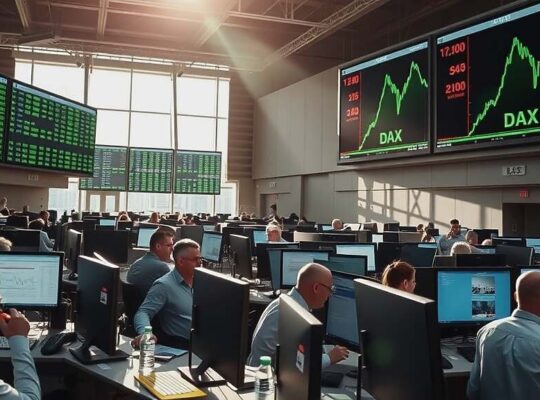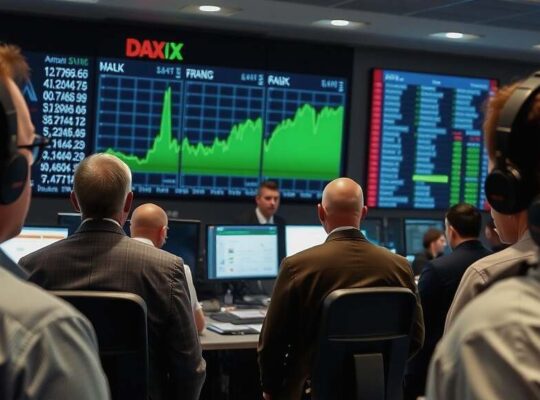The German DAX index rebounded Wednesday after an initially hesitant start, ultimately closing in positive territory despite a brief dip into the red during the morning session. By midday, the index stood at approximately 23,575 points, reflecting a gain of 0.5 percent compared to the previous trading day. Commerzbank, Siemens Energy and Zalando led the gains, while Continental, FMC and Volkswagen lagged behind.
Market analysts attribute the DAX’s performance to a pervasive sense of caution prevailing among investors, eagerly awaiting the release of crucial US employment data. The anticipation surrounding potential interest rate cuts remains a significant driving force behind market sentiment, making any indication regarding US monetary policy a focal point for traders.
“The DAX 40 is essentially tethered to the US stock markets” stated market expert Andreas Lipkow. “It’s being carried along by the upward momentum in US equities”. Lipkow’s assessment underscores the index’s reliance on external factors, suggesting a lack of independent market behavior. This dependence results in fluctuations directly mirroring the pre-market activity in the United States. Current positive sentiment from US futures contracts has contributed to the DAX’s gains, further highlighting its vulnerability to external influences.
This heightened sensitivity to US economic signals raises questions regarding the true autonomy and resilience of the German stock market. While positive for short-term gains, this interdependency could expose the DAX to significant volatility should US economic data or policy shifts prove unfavorable.
The Euro strengthened slightly against the US dollar, trading at $1.1572, reflecting a degree of investor confidence in the Eurozone economy. However, the slight easing of oil prices, with Brent crude futures falling to $62.44 a barrel, suggests persistent concerns about global economic growth and potential recessionary pressures. This mixed performance underscores the complex and interconnected nature of global financial markets and the challenges facing European equities.












